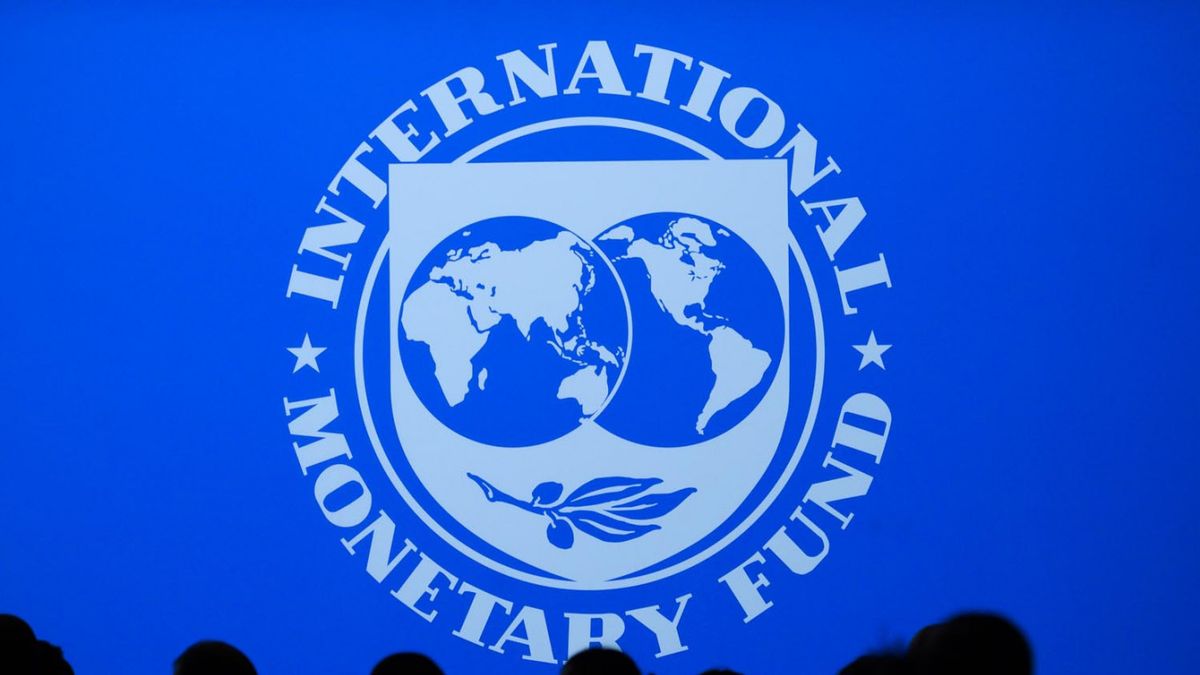According to the article, -a kind of condensation of the most regressive in terms of economic policy that the organization itself has broken down week after week in its technical publications- in the face of an adverse scenario of rate hikes by the FED, the indebted countries and “the that are under stronger inflationary pressures or have weaker institutions must act faster”. The recommendation is “…letting currencies depreciate and raising benchmark interest rates. If disorderly conditions arise in foreign exchange markets, central banks with sufficient reserves can intervene, provided that such intervention does not supplant due macroeconomic adjustment. On the other hand, he points out that, from the fiscal side, “this strategy could consist of announcing a comprehensive plan to gradually increase collection, improve spending efficiency or carry out structural fiscal reforms, such as reorganizations of pensions and subsidies.”
the storm is brewing
“Prices are rising at the fastest rate on record in nearly four decades, and the labor supply shortage is driving up wages. The new omicron variant has raised more concerns of supply-side pressures weighing on inflation. The Federal Reserve has indicated that developments in inflation are a key factor in its decision last month to curb asset purchases sooner. “These changes have made the outlook for emerging markets more uncertain. In addition, these countries are facing high inflation and considerably higher levels of public debt. The average gross public debt in emerging markets has increased by almost 10 percentage points since 2019, and is estimated to stand at 64% of GDP by the end of 2021, with marked variations from country to country. But in these economies, unlike the United States, the economic recovery and labor markets are less robust. While dollar borrowing costs remain low for many countries, concerns about domestic inflation and stable external financing led many emerging economies — including Brazil, Russia and South Africa — to start raising interest rates last year. ”.
The IMF blog speaks of “new risks to the recovery” despite the fact that they maintain “we continue to expect solid growth in the United States”. Referring to the Federal Reserve, they maintain that “if monetary policy rates rise and if inflation moderates as expected, history shows that the effects for emerging markets will tend to be mild if monetary contraction is gradual, properly communicated.” and it occurs in response to an entrenchment of the recovery. In any case, it is still possible that the emerging market currencies depreciate, but external demand would offset the effect of the increase in financing costs”.
To devalue that the world is ending
But even so, the IMF publication notes that “the repercussions in emerging markets could also be less benign. Widespread wage inflation in the United States or continued supply bottlenecks could push prices higher than expected and lead to expectations of faster inflation. The resulting faster Federal Reserve rate hikes could trigger jitters in financial markets and a tightening of global financial conditions. To this could be added a slowdown in demand and trade in the United States, which could trigger capital outflows and currency depreciations in emerging markets.”
The recipe found by the agency, that is, the recommendation to navigate those turbulent waters seems to be the same as always: “in such a scenario, the repercussions of the tightening of the Federal Reserve’s policy could be more severe in vulnerable countries. In recent months, emerging markets with high levels of public and private debt, foreign currency exposures, and lower current account balances have already seen larger fluctuations of their currencies against the US dollar. This combination of slower growth and heightened vulnerabilities could lead to a loop of negative interactions for these economies, as noted by the IMF in the October World Economic Outlook (WEO) and World Financial Stability Report ( GFSR report).
Argentines, to the adjustment
Says the article: “Some emerging economies have already started to change their monetary policy and are preparing to roll back fiscal support to tackle rising debt and inflation. Faced with tighter financing conditions, emerging markets need to tailor their response based on their circumstances and vulnerabilities. Those with policy credibility can tighten monetary policy more gradually, while those with stronger inflationary pressures or weaker institutions need to act faster and with more far-reaching measures. In any case, part of the answer must be to let currencies depreciate and raise benchmark interest rates. If disorderly conditions arise in foreign exchange markets, central banks with sufficient reserves can intervene, provided that such intervention does not supplant due macroeconomic adjustment.
The article argues that “these measures may pose difficult trade-offs for emerging markets, between supporting a weak domestic economy and safeguarding price and external stability. Similarly, giving companies support that goes beyond the measures already in place can increase credit risks and undermine the longer-term health of financial institutions by delaying the recognition of losses. And the withdrawal of these measures could further tighten financial conditions, to the detriment of the recovery”.
“To address these trade-offs, emerging markets can take action now to shore up their policy frameworks and reduce vulnerabilities. For central banks that are tightening policy to contain inflationary pressures, clear and consistent communication of their plans can help the public better understand the need to pursue price stability. Countries with high levels of debt denominated in foreign currencies should seek to reduce mismatches and hedge exposures as much as possible. And to mitigate refinancing risks, bond maturities should be extended even if that increases costs. Heavily indebted countries may also have to undertake fiscal adjustment sooner and faster.”
Business debt and adjustment
According to Danninger, Kang, and Poirson, “Continuing support for business through financial policies needs to be reconsidered, and plans to normalize such support need to be carefully calibrated against the outlook and with a view to preserving financial stability. In countries where corporate debt and delinquent portfolios were already swollen even before the pandemic, some weaker banks and non-bank lenders may face solvency problems if funding becomes difficult. Resolution regimes must be fine-tuned”.
In that context, the advice is to pay attention to fiscal policy, which can “help build resilience to shocks.”
“Assuming a credible commitment to a medium-term fiscal strategy would help shore up investor confidence and regain room to provide fiscal support in a downturn. One aspect of this strategy could be to announce a comprehensive plan to gradually increase revenues, improve spending efficiency, or implement structural fiscal reforms, such as reorganizations of pensions and subsidies (as described in the October IMF Fiscal Monitor). ”, states the article.
Source From: Ambito
David William is a talented author who has made a name for himself in the world of writing. He is a professional author who writes on a wide range of topics, from general interest to opinion news. David is currently working as a writer at 24 hours worlds where he brings his unique perspective and in-depth research to his articles, making them both informative and engaging.




